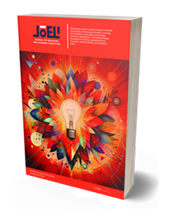..:: Additional Menu ::..

| ..:: Journal Identity ::.. |
||
| Journal Title | Journal of Educational and Learning Innovation | |
| Journal Abreviation | JOELI | |
| Subject | Educational and Learning | |
| Language | English | |
| ISSN | 3063-3966 (online) | |
| Issue Frequency | 3 issues per year (July, November, March) | |
| DOI Prefiks | prefix 10.XXXXX/joeli.vxix.xxx by |
|
| Accreditation | National Sinta | |
| Editor in Chief | Dr. Shoffan Shoffa, S.Pd., M.Pd. | |
| Publisher and Address | by CV Zamron Pressindo, Kebomas, Gresik, East Java 61124, Indonesia | |
| Website Publisher | https://zamronedu.co.id/ | |
| Citation Analysis | Google Scholar l Garuda l SINTA l DOAJ l Dimension | |
| License | Creative Commons Attribution 4.0 International license (Attribution 4.0 International (CC BY 4.0)). | |
Language
Visitors
|
JOELI: Journal of Educational and Learning Innovation Published by CV Zamron Pressindo, Kebomas, Gresik, East Java 61124, Indonesia. Email: jurnaljoeli@gmail.com |
|
|
